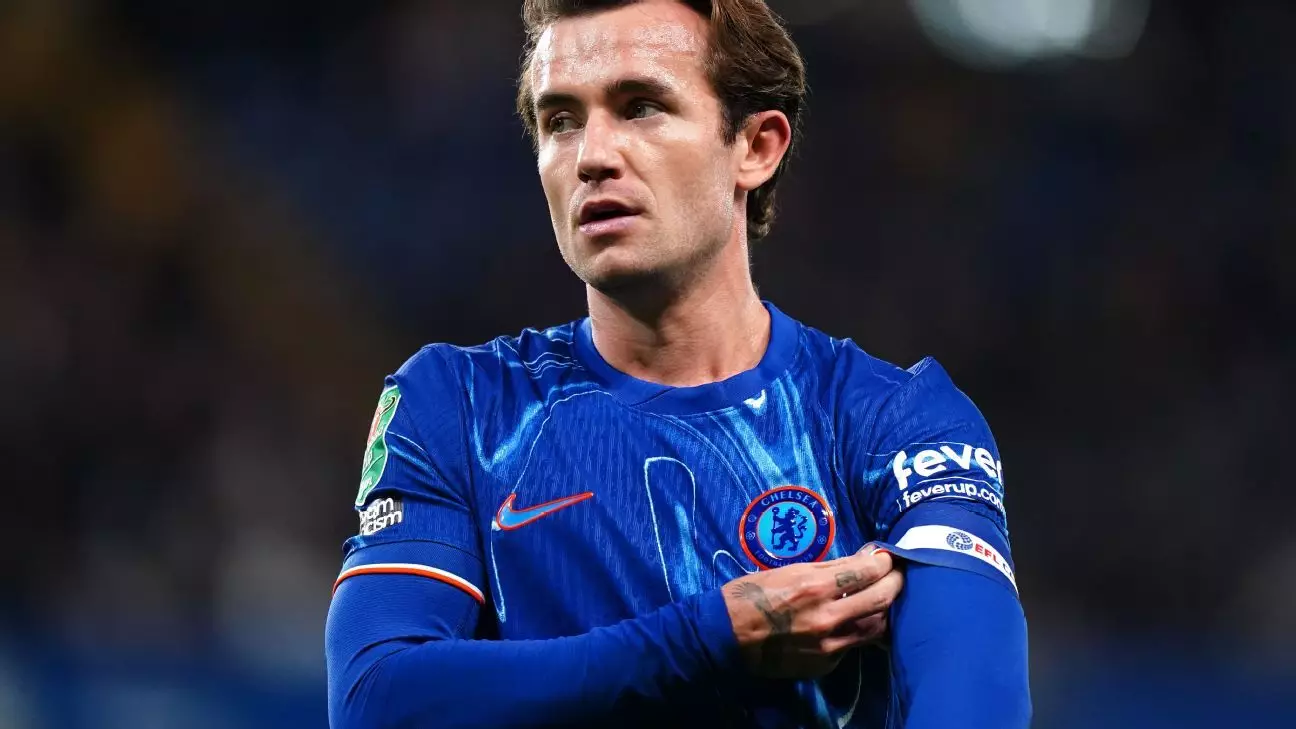The transition of managerial power at Chelsea Football Club has introduced a mix of hope and apprehension among players and fans alike. Enzo Maresca, who took the reins last summer, is navigating the tumultuous waters of performance, squad dynamics, and player management. One of the most contentious issues during this period has been the treatment of Ben Chilwell, a talented full-back reduced to minimal appearances under the new regime.
Ben Chilwell’s track record speaks volumes about his capabilities; in just four years with Chelsea, he made 70 Premier League appearances that showcased his skill and consistency. With such pedigree, it is perplexing that he has found himself sidelined to a single outing in the current season—an anomaly that raises questions about Maresca’s preferences and strategies. Despite Chilwell’s professional demeanor and hard work, Maresca’s admission of feeling “shame” for the situation does little to alleviate the concerns surrounding the player’s future at the club.
In a candid discussion about his decision-making process, Maresca emphasized that his strategy revolves around versatility and specific tactical roles that current first-team members fulfill. He highlighted that alternate options like Malo Gusto and Marc Cucurella offer different skill sets, which he believes are better suited to his tactical vision. Yet, this explanation may not fully resonate with those who recognize Chilwell’s proficiency as an exceptional full-back. The coach’s reluctance to utilize Chilwell—despite acknowledging his talents—speaks to a broader philosophy that may not account for the individual contributions of all players in the squad. Moreover, Maresca’s argument against traditional full-back roles could alienate players accustomed to these positions.
As the dilemma with Chilwell unfolds, the situation of young defender Renato Veiga is another narrative worth examining. After joining from FC Basel, Veiga’s adaptation to the left-back role instead of his preferred centre-back position has reportedly left him discontented. Maresca’s statements reflect a resistance to player dissatisfaction, suggesting that even if a player isn’t in their preferred role, success at the national team level should validate their position. However, this perspective may underestimate the psychological impact on younger professionals who feel misused or overlooked.
Externally, Chelsea’s performance woes deepen the discussion about player treatment and management. Without a Premier League victory in five matches, the pressure mounts on Maresca to find confidence and cohesion within the squad. The looming match against Bournemouth serves as a critical juncture for both the manager and players, including Chilwell and Veiga, who may seek clarity on their futures ahead.
Maresca’s decisions ignite a complex conversation about adapting to new managerial philosophies while respecting player talents and aspirations. Reflecting on individual player circumstances alongside team dynamics becomes essential not just for individual players like Chilwell and Veiga, but also for the overall health of Chelsea Football Club as it navigates its challenges in a competitive landscape.

